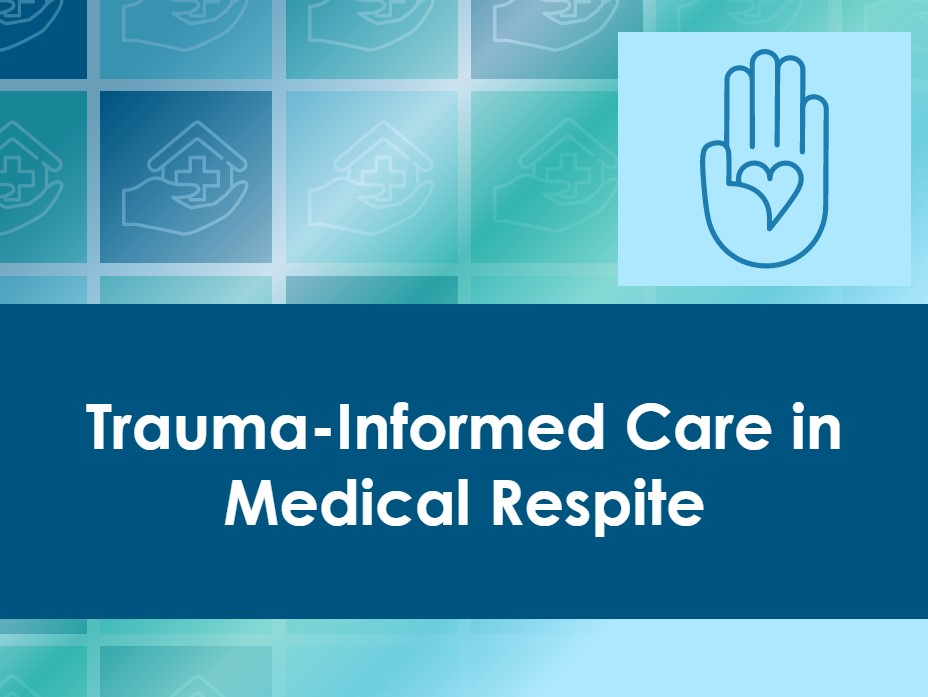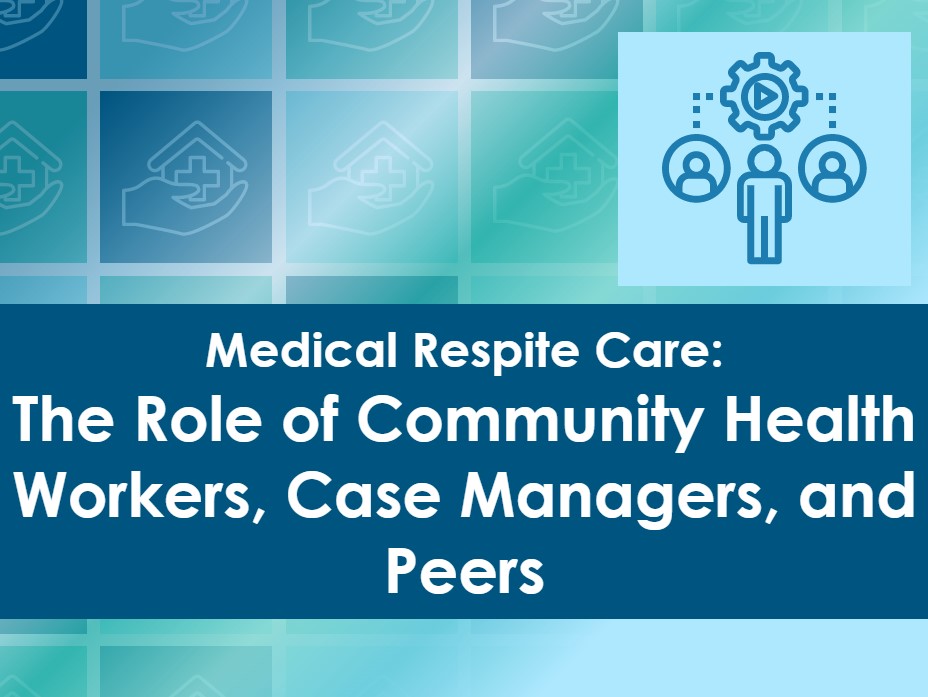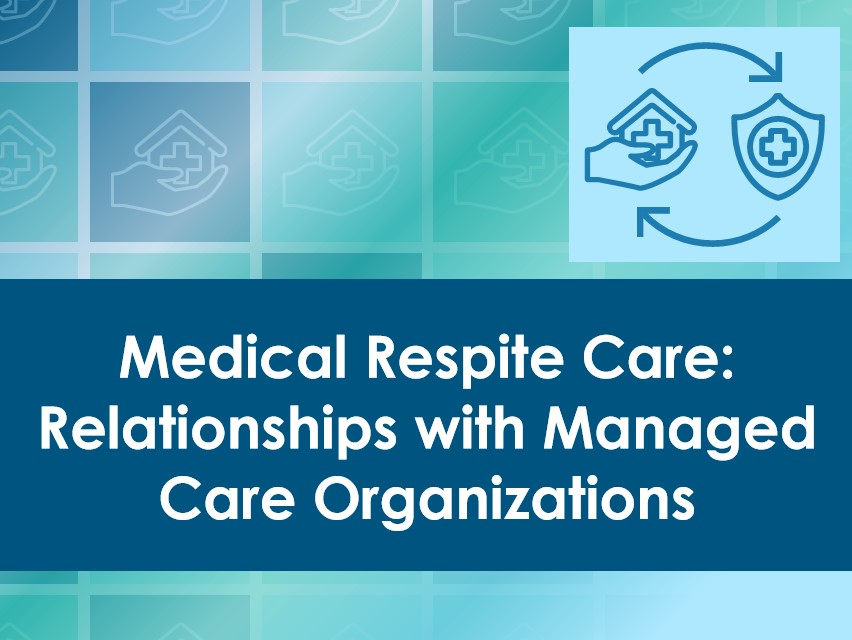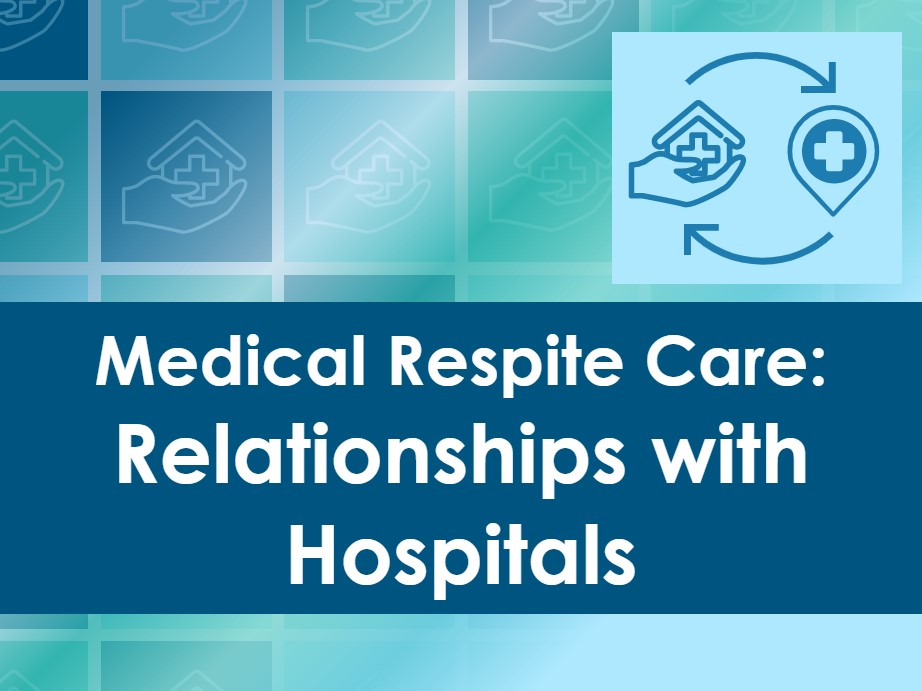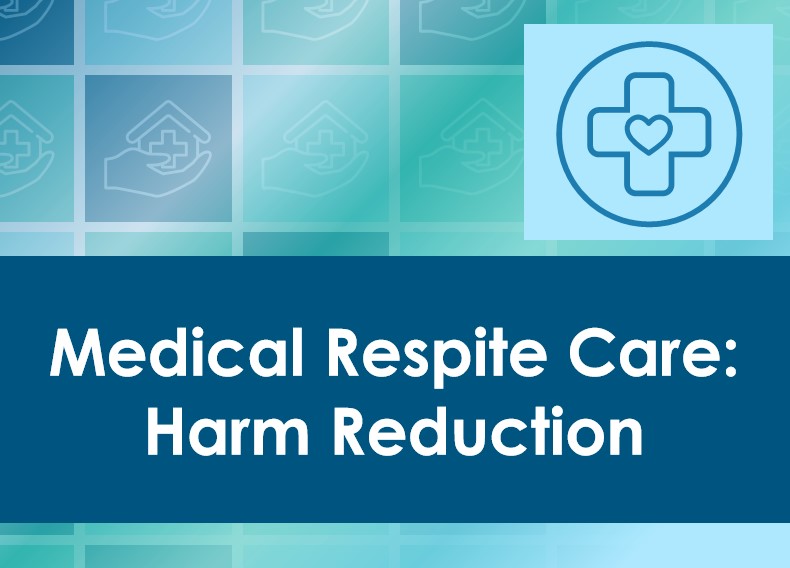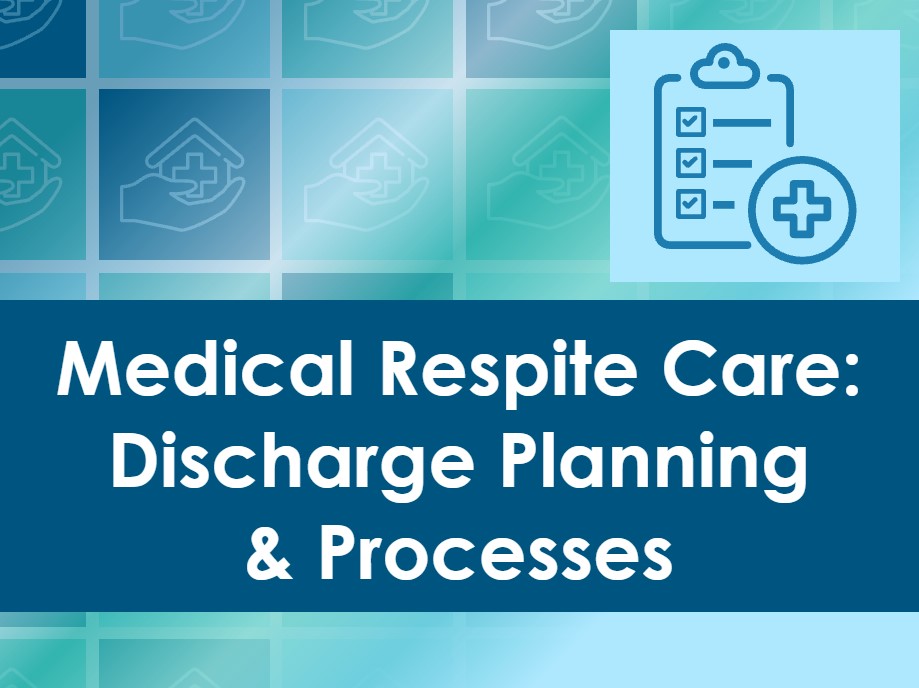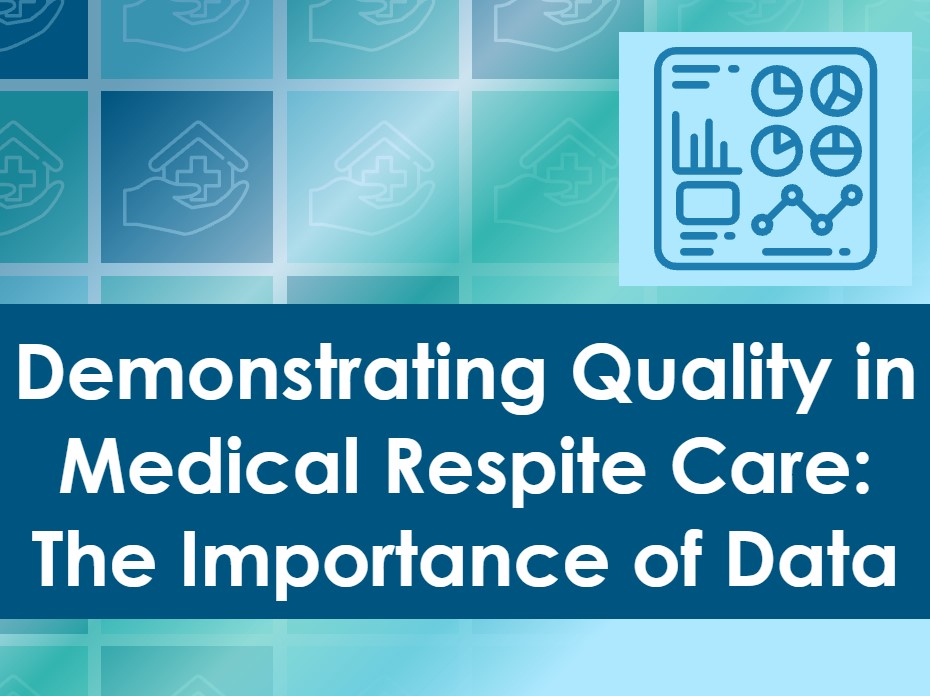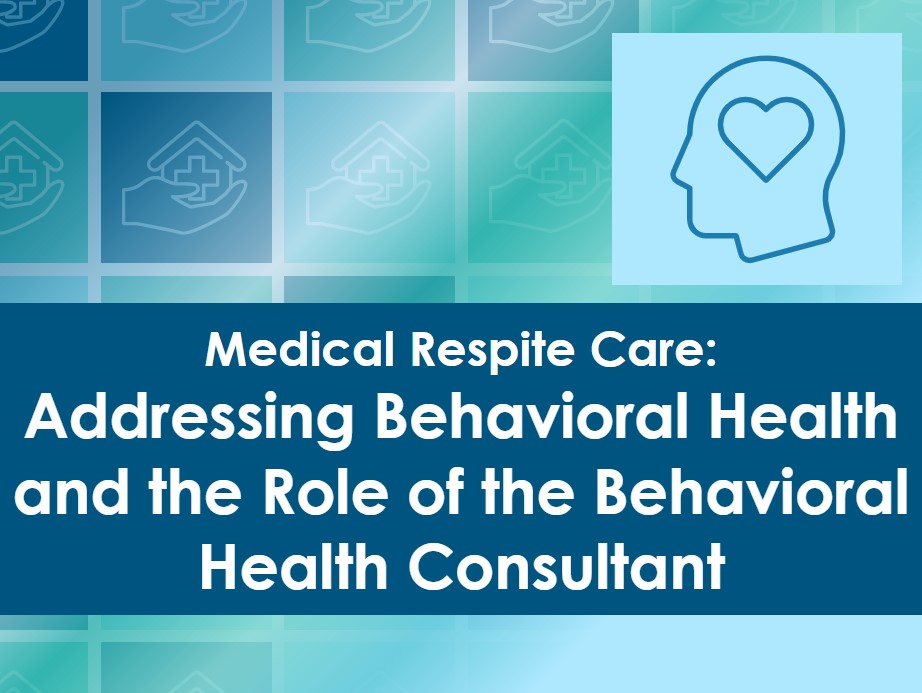MRC – Trauma-Informed Care in Medical Respite
Trauma-informed care (TIC) is essential for service delivery within medical respite care. This course provides an overview of TIC principles and how they are applied within medical respite programs. This course is approximately 2 hours in length. If you are logged in, all of your progress will be saved if you need to exit the […]
MRC – Trauma-Informed Care in Medical Respite Read More >>


